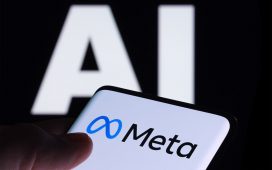This article will take you 4 minute(s) to read
The aviation industry is super complicated and amazingly high stakes. Due to this exact reason governments across the globe made it mandatory for detailed inspections of aircraft at regular intervals. Some aspects of aircraft inspections can be performed quickly, while the remaining can only be accomplished with special instruments.
$1800 million by 2025!
According to a report from Global Market Insights, Inc 2019, the flight inspection market is poised to rise from $1500 million in 2018 to over $1800 million by 2025. The rapid technology evolution is expected to boost the flight inspection market growth over the projected timeframe.
At present, there are lots of startups contributing to it, and one among them is the Amsterdam-based Aiir Innovations. Founded in 2016, this company creates advanced software solutions to make aircraft engine inspection faster, more efficient, and safer.
Secured €500K to improve the product!
Recently, Aiir Innovations has secured an investment of €500,000 from Mainport Innovation Fund II. The company wants to use the funding to improve the product in the coming years further, allowing inspections to be carried out even better and faster.
Aiir Innovations uses AI!
As we all know, maintaining aircraft engines is dependent mainly on human resources. The mechanic inspects each component, records any damage manually, and provides a recommendation.
In this regard, the Dutch company is developing software that mechanics can use in so-called borescope inspections to detect anomalies, like cracks and dents.
Bart Vredebregt, the co-founder, said:
Think of it as an assistant with an extra pair of digital eyes analyzing videos and images at lightning. And all information is immediately processed into a digital report.
Indicating and Self-learning!
This way, the software increases the productivity of the inspection, which enables the mechanic to focus on assessing the damage. The software will get an indicating function and is self-learning.
Vredebregt added:
We can already reduce the full borescope inspection time from 16 hours to about 12 hours. But that’s only the beginning. In four to six years, we expect to be able to perform the inspection in just 20% of the time it currently takes.
Tie-up with KLM
Aiir Innovations founders know each other from their master Artificial Intelligence (AI) at the University of Amsterdam. In fact, KLM invited them three years ago to come up with artificial intelligence solutions for carrying out borescope inspections.
For the uninitiated, KLM was founded on October 7, 1919, and is the first airline in the world that still operates under its original name. Also, KLM is the core of the KLM Group, which further includes the wholly-owned subsidiaries KLM Cityhopper, transavia.com and Martinair.
Furthermore, the Aiir Innovations team worked closely with engineers and mechanics on the KLM work floor over the past three years. Earlier this year, KLM Engineering Maintenance signed a five-year contract.
Paul Chün, Vice President KLM Engine Services, said:
Our engineers perceive working with the software as enjoyable. Thanks to the digital report, they spend less time on administrative tasks. This not only improves the way they record it also increases job satisfaction.
Erik Swelheim, Managing Director and Chief Financial Officer KLM:
KLM sets the highest possible standards for aircraft maintenance. This software helps to improve quality further and thus contributes to air safety.
Expansion on cards!
In addition to KLM, Aiir Innovations also has several pilots with maintenance parties in Europe. Many more will be launched in the coming years.
Vredebregt further added:
We are, therefore using the investment of half a million euros to continue our expansion abroad. To achieve this, we need to set up a professional sales organization. Another challenge in the coming years will be to obtain the certification we need for the next version of our product. The laws and regulations in aviation are rightly stringent. If we want to use our artificial intelligence on a large scale, we will have to meet all the requirements
Stay tuned to Silicon Canals for more European technology news.
Nuclear power for your b2b-startup: 5 reasons why you should join the Comet Competition







